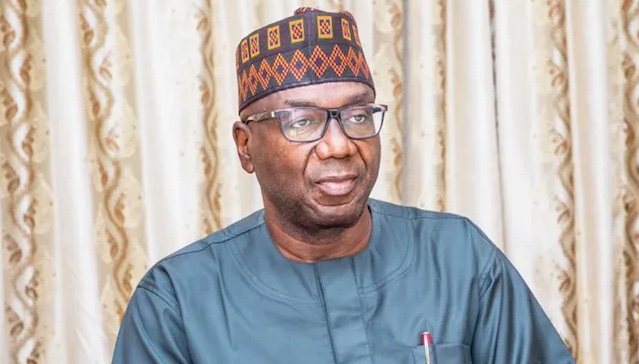News
State govs are taking steps to tackle food crisis, economic hardship, NGF claims

The Nigeria Governors Forum (NGF), on Sunday said that state governors in the country are implementing diverse strategies and measures aimed at resolving the ongoing economic challenges and food crises within their respective states.
Ripples Nigeria reports that Nigerians have been facing economic challenges since the removal of petrol subsidy which led to a sharp increase in the prices of essential goods and other commodities.
The NGF, in a statement released by its Acting Head of Media, Halimah Salihu Ahmed, on Sunday, said that the governors were dedicated to alleviating the pain and suffering of citizens nationwide.
According to the NGF statement, Kwara State governor and NGF chairman, Abdulrahman Abdulrazaq, along with Governors Agbu Kefas of Taraba State, Lucky Aiyedatiwa of Ondo State, and Ahmed Ododo of Kogi State, are advocating for enhanced crop production through collaboration with the Federal Ministry of Agriculture to tackle food shortages.
She further revealed plans in Akwa Ibom for a state agency to procure and sell food items at lower prices. Similarly, in Kano and Yobe, authorities cracked down on food hoarding, banning bulk purchases and exports.
The statement also disclosed that Governors Mohammed Umar Bago of Niger State and Peter Mbah of Enugu State are tirelessly working to eliminate hunger and poverty by investing in agriculture and rural economic development.
The statement read in part: “In the same vein, in Kano State, authorities raided warehouses where traders are suspected of hoarding food supplies.
“In Yobe State government banned bulk purchases of grain from local markets to stop hoarding and exports across Nigeria’s borders saying it was to “stem the tide of food scarcity and high cost of grains.
Read also: Five-storey building collapses in Anambra, many feared trapped
“In Niger State Governor Mohammed Umar Bago announced a ban on the mass purchase of foodstuffs from local markets. He ordered security forces to confiscate trucks carrying products in bulk and share the food with the people.
“In Enugu State, Governor Peter Mbah said his administration will eradicate hunger and poverty in the state and unlock the rural economy through investment in agriculture and agro-industrialisation.
“In Zamfara state, last week, Governor Dauda Lawal hosted the Sweden Ambassador, Annika Hahn-Englund, in partnership on how to grow the state economy and address the current hardships.”
The statement said that Governor Abdulrazaq explained that the Anchor Borrowers Programme that was previously implemented by the Central Bank of Nigeria did not achieve much.
According to the statement, the NGF chairman said: “We could not achieve much with the CBN Anchor Borrowers program; it was very challenging. The issue of food security is a one-stop-shop and we need to concentrate on what we are doing. We need to concentrate on what we are doing for the dry season farming.
“The minister has come up with a program on cassava, rice, and maize and we want to engage in that program and urgently make sure we improve on our yield and deliver to the Nigerian population.
“We want to get to a stage where we export our food. What we have now is that, because of the devaluation of our naira, Nigeria’s food is being exported to West Africa and is the cheapest in the region today.
“The governors had realised that we have a new Ministry of Agriculture, because over the last four years, before this administration, the engagement was not too productive.”
Join the conversation
Support Ripples Nigeria, hold up solutions journalism
Balanced, fearless journalism driven by data comes at huge financial costs.
As a media platform, we hold leadership accountable and will not trade the right to press freedom and free speech for a piece of cake.
If you like what we do, and are ready to uphold solutions journalism, kindly donate to the Ripples Nigeria cause.
Your support would help to ensure that citizens and institutions continue to have free access to credible and reliable information for societal development.
























